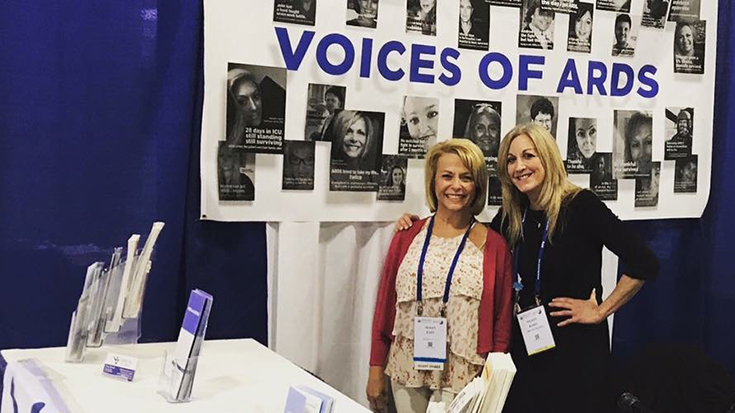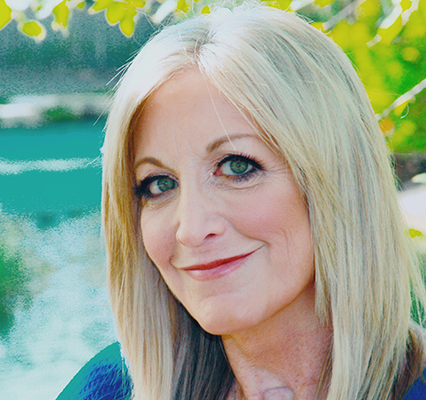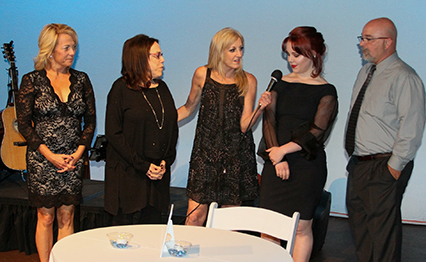

Positive and negative experiences make lasting memories, shaping and directing our future decisions and planning. Keeping our focus on delivering genuine care to patients will help them better understand their diagnosis, keep as comfortable as possible, and be confident in their health care team. Eileen Rubin shares her story of how a poor experience of care motivated her to make a change.
When Rubin was hospitalized with the acute respiratory distress syndrome (ARDS) in 1995, the then 33-year-old attorney and her family were left feeling overwhelmed, confused, and often downright angry at the callousness they perceived in so many of the physicians and other caregivers who trooped through her room.
Despite the fact that she credits those people with saving her life, she walked out of the hospital nine weeks later feeling as if neither she nor her family really received the kind of compassionate care anyone in that kind of life-threatening position deserves.
Five years later she decided it was time to do something about it.
Making a difference
“Over the five years following my hospitalization, I gave birth to my two children, went back to work as a criminal trial attorney part-time, and found a balance in my life that I felt was missing before I got sick,” Rubin said.
“And then one day, it hit me. As I looked down at my young children, I thought to myself, ‘If either of them was ever diagnosed with ARDS and I did not do anything to somehow make a difference, I would not be able to live with myself,’” she said.
Her answer: establish a foundation to raise awareness about the condition and provide resources aimed at ensuring other patients would receive not just first rate medical care, but first rate medical caring as well.
One simple purpose

Co-founded by Rubin and Paula Blonski, who lost her sister to ARDS, the ARDS Foundation began with one simple purpose: create an easy-to-read brochure about ARDS that could be given to families of patients hospitalized with the condition to help them understand what their loved ones were experiencing.
Things just mushroomed from there.
“We have partnered in three medical research grants in the past, offered travel grants, nursing scholarships, and facilitated medical research projects as well as other things,” Rubin said. “ARDS Foundation has sponsored the Aspen Lung Conference twice and the Paris ARDS Conference last June.”
The Foundation also launched its Voices of ARDS Campaign last year to give patients and family members of patients who did not survive the condition the chance to tell the world, in their own words, how ARDS has affected their lives.
The videos are housed on the Foundation website, and more will be added over time.
Now a new campaign is in the works too.
“We are about to launch a new awareness campaign which aims to be multifaceted, reaching media on different platforms,” Rubin said. “Almost always, people will share that the first time they heard of ARDS was when they, or their loved one, was diagnosed. That needs to change.”
The Foundation recently received a $50,000 grant from PCORI to support the Humanizing the ICU for Patients and Families campaign, and will use the funds in part to host community meetings that will include various stakeholders.
One session will be devoted to the different types of therapists involved in the care of ARDS, including respiratory therapists.
Two different stories
So, by now you might be thinking, “What did Rubin think of the RTs who cared for her during her own bout with ARDS?”
She has a cautionary tale to tell — and an inspiring one as well.
The former involves an RT who was charged with suctioning her.
“I already was aware of the difference when people were suctioning. When some did it, it was not harsh, but others were very harsh,” she recalls. “That particular time though, the suctioning was so harsh that it threw me into a coughing fit.”
She says she coughed nonstop for the next four hours until physicians finally gave her cough syrup with codeine.
“After that time, whenever that respiratory therapist came into my room, I started shaking with anxiety,” Rubin said. “He had to reassure me that he was not going to suction me; that he was just looking at my numbers.”
The latter story exemplifies the kind of respiratory therapist — indeed, the kind of health care professional in general — she wants other ARDS patients to have.
“There was one wonderful respiratory therapist who, each time she came into my room, was bright and sunny and positive, and she always stated her name and always explained what was going on or what she was going to do,” Rubin said. “I remember when I needed to have three additional chest tubes and she was with me, had to bag me for a very long time.”
The procedure was so lengthy Rubin began to feel bad for the therapist.
“Somehow I mouthed how sorry I was, and I remember she responded by telling me that she was fine and I should not worry about her. She reassured me,” Rubin said.
You have the power
Rubin believes every clinician who goes into an ARDS patient’s room has the ability to make a positive impact like that.
“These experiences with patients are ones that can affect their time on the ventilator in either a positive or negative way, and are often things that patient survivors will remember the rest of their lives,” she said.
“It usually does not get easier for a critical care patient as the days go on and on,” Rubin said. “Medical professionals have the power to make this experience less stressful. They have the power to be one of the people who make the ICU experience just a little bit easier.”